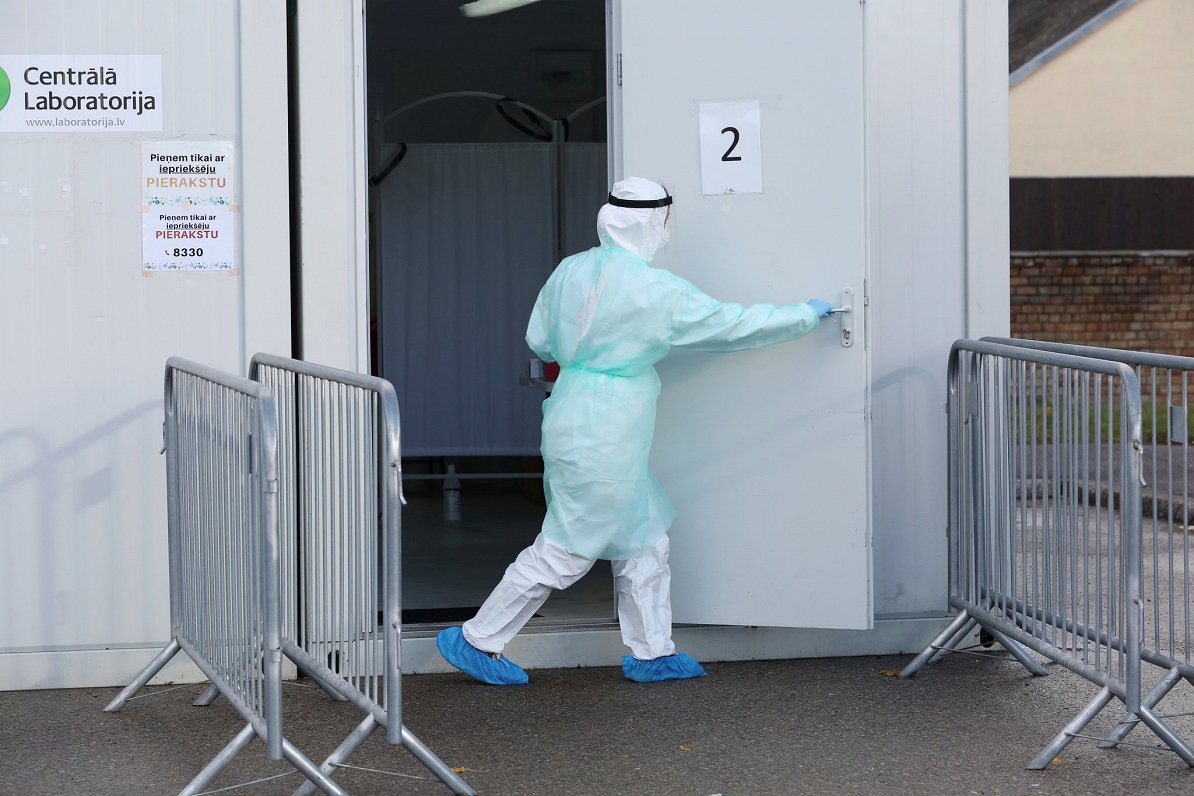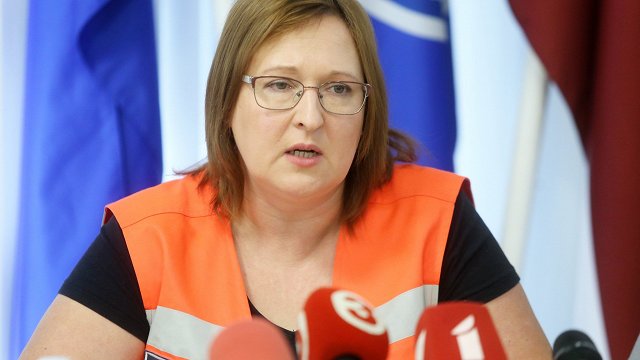The decision was made by the government November 6 following meetings of the Cabinet and Crisis Management Council. As previously reported by LSM, the first state of emergency this year ran from March 13 until June 10.
Prime Minister Krišjānis Kariņš said that after listening to health specialists the government received "very clear news" that more needed to be done to combat the coronavirus.
"Listening to the specialists and after our own debate the government today unanimously agreed to declare a state of emergency in the country from November 9," Kariņš said.
"Again, I call on the public to cooperate" Kariņš said, pleading with people not to take advantage of the brief few days before the state of emergency comes into force by visiting friends and relatives unnecessarily or indulging in other potentially risky actions.
In order to limit the rapid spread of COVID-19, an emergency situation will be declared in Latvia from Monday, New, stricter restrictions will apply on individual and group behavior. Violations of the restrictions set during the emergency situation will be punishable by a fine of up to 2,000 euros for individual persons and up to 5,000 euros for legal entities.
President Egils Levits voiced his support for the move.
"Today's decision of the Cabinet of Ministers to declare a state of emergency is necessary and correct. Latvia has been fully affected by the second wave of the pandemic. Therefore, this decision is taken at the right time when further delay cannot be permitted allowed. This will give the government additional powers to put in place the necessary measures, based on expert advice, to combat the uncontrolled further spread of the pandemic," Levits said, calling for a "forward thinking strategy".
Here are some of the key measures that will be in place.
On-site public events (e.g. theaters, concerts, cinema screenings) are completely banned. No more than 10 people from no more than two households can gather at private events at the same time. Up to 50 people can gather outside for meetings, processions and pickets. More than two households can attend a funeral, up to a maximum of 10 people (excluding funeral staff).
Entertainment events such as discos are banned. Gaming halls and bars, as well as skating rinks, children's party venues, amusement centers, trampoline parks, indoor children's playgrounds and babysitting rooms (including at shopping malls) must all close.
Swimming pools, water parks, saunas and spas must close their doors. Nature trails are available for individual recreation. Museums, exhibitions, libraries and other cultural sites can stay open (subject to social distancing etc) but cannot organise events.
There will be no public sports events - competitions, demonstrations, shows, etc. No more than 10 people, excluding coaches, gather outside for sports training. Changing rooms must not be used. Indoors, training can only be done individually - one coach and one client or a coach and more than one person if they are from the same household. There must be not less than 10 square meters per person for indoor training. Sport venues and sports clubs must close by 22:00.
Elite sports competitions for adult national team athletes and Olympic Sports Federation participants may take place, but only without spectators.
Catering establishments may serve food only for pick-up, except in educational institutions, workplaces and at Riga Airport.
In state and municipal institutions, services will be provided remotely or by prior appointment.
Hairdressing services are available by prior appointment and with a distance of 2 meters between clients. Tattoo parlors must close.
On weekends and public holidays, only certain retailers will be allowed to open. Shopping centers will open only grocery stores, pharmacies, veterinary pharmacies, animal feed stores, bookstores, press outlets, opticians, hygiene and household goods stores and telecommunications goods service points.
Retail outlets must provide 10 square meters per visitor and masks must be worn. Masks should also be worn in open market areas and street sales.
Opening hours are shortened from 06.00 to 20.00 for cultural venues and for exhibitions, churches and other religious places of activity.
The on-site education will continue for classes 1-6. Distance learning will continue for classes 7-12, as well as students and adults in professional development and further education, except for practical classes.
There will be no children's camps, school trips, rehearsals of amateur arts and other artistic groups in person, except for individual lessons and if people come from the same household.
Additional regulations during the state of emergency will also affect the organization of legal proceedings, social care institutions, prisons and social service providers.





























